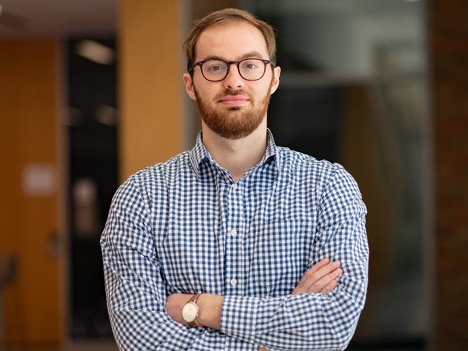Past Event: Oden Institute Seminar
Jan Fuhg, Assistant Professor, Aerospace Engineering and Engineering Mechanics, UT Austin
3:30 – 5PM
Tuesday Dec 3, 2024
POB 6.304 and Zoom
Data-driven constitutive modeling with neural networks has received increased interest in recent years due to its ability to easily incorporate physical and mechanistic constraints and to overcome the challenging and time-consuming task of formulating phenomenological constitutive laws that can accurately capture the observed material response. However, even though neural network-based constitutive laws have been shown to generalize proficiently, the generated representations are not easily interpretable due to their high number of trainable parameters. Sparse regression approaches exist that allow for obtaining interpretable expressions, but the user is tasked with creating a library of model forms which by construction limits their expressiveness to the functional forms provided in the libraries. We propose to train regularized physics-augmented neural network-based constitutive models utilizing a smoothed version of L^0-regularization. This maintains the trustworthiness inherited by the physical constraints but also enables interpretability which has not been possible thus far on any type of machine learning-based constitutive model where model forms were not assumed a priori but were actually discovered. We aim to set a new paradigm for interpretable machine learning models in the broad area of solid mechanics where low and limited data is available along with prior knowledge of physical constraints that the learned maps need to obey.
Jan Fuhg joined the Department of Aerospace Engineering and Engineering Mechanics in the spring semester of 2024. Before that, he received his Ph.D. in Mechanical Engineering at Cornell University in 2023 and a B.Sc. and M.Sc. in Computational Engineering at the University of Hannover, Germany. Fuhg's research focuses on the development of methods for data-driven computational science and scientific machine learning. He currently works on theoretical and computational tools for modeling and forecasting the mechanics of materials across different length and time scales. Additionally, he is interested in reliability analysis, uncertainty quantification, and the design of experiments.
